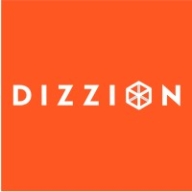

Microsoft Remote Desktop Services and Dizzion provide virtual desktop solutions. Microsoft Remote Desktop Services holds an advantage in pricing and customer support, while Dizzion leads in features, catering to functionality-focused users.
Features: Microsoft Remote Desktop Services integrates seamlessly with Windows, enhancing productivity with easy access to desktops and applications. It provides reliable security and supports multi-platform usage, including browsers. Dizzion offers cloud-based desktops with flexibility, robust security protocols, and comprehensive data protection, attracting organizations with stringent security requirements.
Room for Improvement: Microsoft Remote Desktop Services could enhance high-resolution support and offer more customizable user experiences. Its setup could be optimized for non-Windows environments. Dizzion could improve cost-effectiveness and streamline its integration process with legacy systems. Enhancing user interface customization would benefit diverse business environments.
Ease of Deployment and Customer Service: Microsoft Remote Desktop Services has a familiar interface, facilitating simple deployment in Windows environments. It provides reliable customer support. Dizzion excels with a streamlined deployment process and proactive customer support, ensuring smooth transition and operation for businesses.
Pricing and ROI: Microsoft Remote Desktop Services offers competitive pricing, benefiting smaller operations with budget constraints. The lower setup cost enhances its ROI. Although Dizzion requires higher initial investment, it delivers higher long-term ROI through advanced features and enhanced productivity, appealing to businesses investing in functionality.
| Product | Market Share (%) |
|---|---|
| Microsoft Remote Desktop Services | 6.0% |
| Dizzion | 0.7% |
| Other | 93.3% |


| Company Size | Count |
|---|---|
| Small Business | 40 |
| Midsize Enterprise | 16 |
| Large Enterprise | 31 |
Dizzion provides cloud-delivered desktops designed to meet the needs of modern businesses. It offers a secure, flexible environment for managing virtual workloads, enhancing productivity, and ensuring seamless user experiences.
Specializing in virtual desktop infrastructure, Dizzion ensures organizations can securely deploy virtual desktops accessible from any device, enhancing remote work capabilities. This approach allows businesses to maintain operational continuity while securing sensitive data and ensuring compliance with industry standards. By integrating with existing workflows, Dizzion supports enhanced productivity and scalability, leading to a more responsive IT environment.
What are the most important features of Dizzion?Dizzion is implemented across industries like finance, healthcare, and call centers, allowing organizations to maintain security and compliance while enabling flexible, remote work solutions. Each industry benefits from tailored features that address unique compliance and security challenges, ensuring reliable performance.
Microsoft Remote Desktop Services is a highly regarded remote access tool in addition to being a top-ranked Virtual Desktop Infrastructure (VDI) solution in the marketplace today.
Microsoft Remote Desktop Services (RDS) is a suite of valuable elements of the Windows operating system (OS) that serve specific desired objectives. Microsoft RDS integrates various features that allow approved users to gain access to graphical desktops and Windows applications remotely. Approved users are able to deploy applications or even a complete desktop without having to install anything on their devices. Everything remains in the cloud. This ensures that there are never any compatibility issues and keeps the organization's original network secure at all times. Administrators are also able to ensure that data cannot be stored in any unapproved location, such as the local device, unapproved drives, or any other location.
Microsoft RDS makes it easy for business organizations to access Windows Desktops and other Windows applications remotely to ensure today’s busy enterprise organizations are able to maintain the highest levels of productivity at all times. There are two basic ways organizations can effectively utilize RDS.
Microsoft Remote Desktop Services Benefits
Microsoft Remote Desktop Services has many benefits. Some of its most valuable benefits include:
Microsoft Remote Desktop Services makes it easy for busy enterprise organizations to stay productive and remain competitive in today’s aggressive marketplace. An organization's end-users can be given access to their own specific desktops from any location, anytime, using any approved device. Additionally, users can access Microsoft applications without having an effect on their device's resource capacity or performance.
Reviews from Real Users
“What I found most valuable in Microsoft Remote Desktop Services is accessibility because the solution lets you take control of your computer remotely, and that's a good feature.” Pascal B., IT consultant at Secoptrial
“The most valuable features of Microsoft Remote Desktop Services are unification, central management, and accessibility.” Jan S. Solution Architect at a tech services company
“The most valuable features are that it is fast and cost-effective. I am not aware of a replacement currently on the market.” Ramon H. Director at Empaco
We monitor all Virtual Desktop Infrastructure (VDI) reviews to prevent fraudulent reviews and keep review quality high. We do not post reviews by company employees or direct competitors. We validate each review for authenticity via cross-reference with LinkedIn, and personal follow-up with the reviewer when necessary.